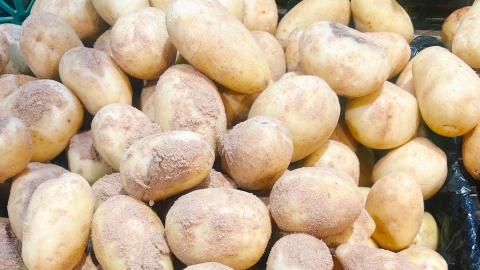Can patients with gout eat potatoes, and what should they pay attention to?
Patients with gout can usually eat potatoes, but should consume them in moderation, use healthy cooking methods, and maintain a balanced nutrient intake.

Potatoes are low-purine foods containing abundant vitamin C and potassium, which help promote uric acid excretion and benefit gout patients. If patients are in the remission phase of gout without symptoms of acute attacks, moderate consumption of potatoes is acceptable and will not trigger acute gout attacks.
Although potatoes have low purine content, excessive consumption may lead to obesity. Therefore, gout patients should control their potato intake. Healthy cooking methods such as boiling, stir-frying, or steaming should be used when consuming potatoes, while high-oil and high-salt methods should be avoided to reduce the risk of obesity and other complications. Pair potatoes with other low-purine, nutrient-rich foods such as vegetables, fruits, milk, and eggs to maintain a balanced diet.
In daily life, patients are advised to engage in moderate physical activity, maintain a healthy weight, and avoid overexertion to reduce the risk of gout attacks.






